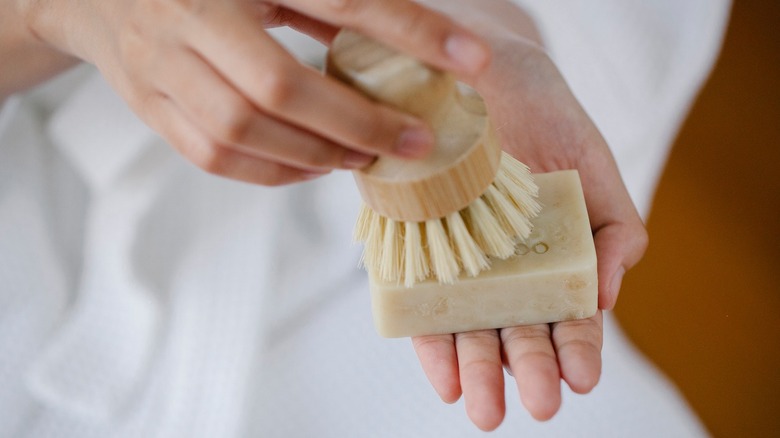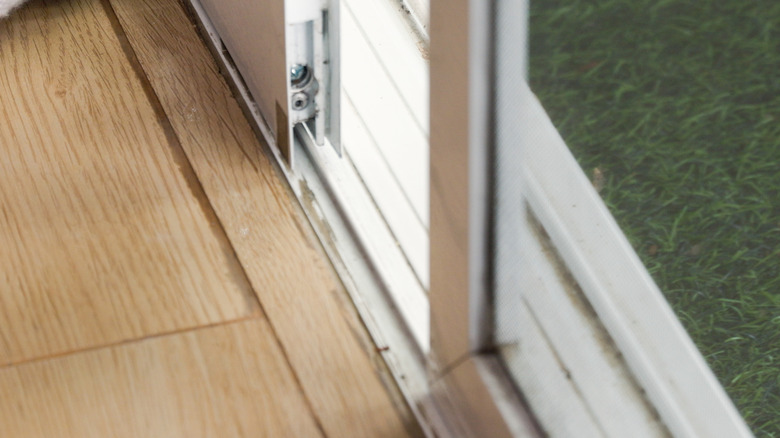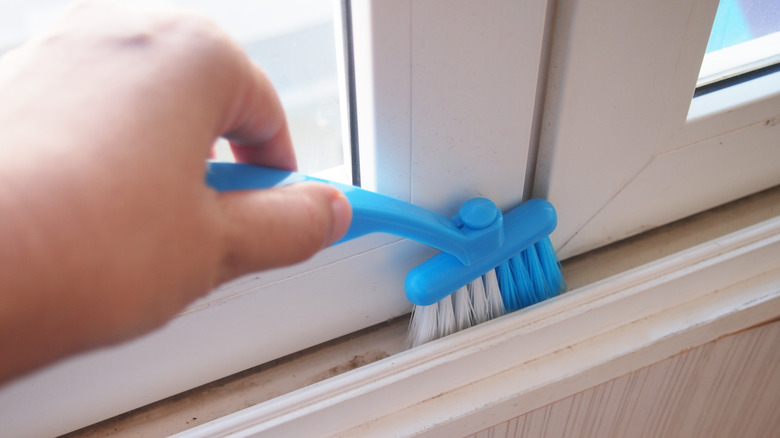How To Fix Your Stubborn Sliding Doors With A Bar Of Soap
If your sliding glass doors are refusing to slide open, the door mechanics are due for a good cleaning and lubrication. While the typical response to a chunky door track is to use a petroleum-based solvent — like WD-40 — a simple bar of soap can do the exact same thing because it acts like a lubricant. This is one of the many reasons why it's great to have bar soap hanging around your home. In fact, some greases and solvents are actually considered to be dirt collectors, which is obviously what you want to avoid.
It's important to mention that you shouldn't apply any random type of lubricant to your door tracks, because not all are created equal. The wrong type can cause more damage than good, which is why bar soap is a safe option. While it's not a suitable long-term alternative to keeping your doors gliding smoothly, bar soap is a quick, inexpensive, and harmless option if you don't happen to have any silicone-based lubricant or white lithium grease on hand. Bar soap is also safer for you and the environment when compared to chemical solvents and lubricants like WD-40.
Clean first, then soap it up
Because of their location, door tracks are easy to look over when you're cleaning and are notorious for collecting dirt, debris, and all sorts of grime and nastiness. It's only once the door in question no longer wants to freely glide open that you remember its existence. Cleaning can be a bit of a chore, depending on how dirty it is, which is why preventative maintenance is so crucial. In fact, it's recommended that you do a quick gunk removal and wipe down of your door tracks every week.
Once your door rails are clean, you'll find that the door glides freely. But even then, some tracks can still retain a certain level of stickiness. This is where bar soap comes in handy. It acts as a chemical-free alternative to solvents and greases, and it doesn't leave a mess. Plus, it smells nice. Bar soap tends to have a smooth, waxy feeling, because its main ingredient is oil (which helps in the hardening process). This oil also acts as a lubricant. If your doors are still putting up a fight after a deep clean and a soap scour, then you might want to check the hardware. In addition to dirt build-up, clunky sliding doors can also be the result of improper installation, humidity, damaged wheels, or a shifting house.
Not all lubricants are created equal
As previously mentioned, certain solvents and lubricants not only have the potential to harm you and the environment, but they can also act like dirt magnets. On the other hand, because of its waxy composition, bar soap does not attract dirt.
There are only four types of lubricants at your disposal, so that's why it's important to pick the correct one. The best option to keep your door tracks working well is a silicone lubricant spray. These are available at most home improvement stores or auto shops. They are safe for use on most materials, including metals and non-metals, plastics, rubbers, and vinyl. Lubricants like grease — which come in different viscosities — are suitable but also collect dirt. Plus, they are incredibly adept at getting other things dirty. WD-40 is a lubricant dissolved in a solvent, as noted by Chemtronics. This makes it great for cleaning, but not necessarily good for lubricating wheels or door tracks. If you use a product like WD-40, you'll not only find yourself spraying your door tracks more often than you'd like — you'll be cleaning them more, too.


